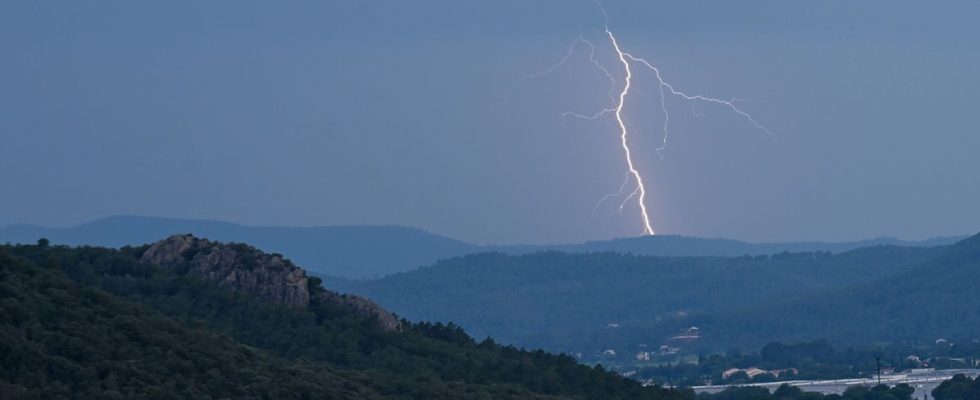Last day of heat wave before the issue: temperatures in France still greatly exceed 30°C on Sunday, but thunderstorms, with possible episodes of hail, will dissipate the heat from Monday.
The country this week broke its temperature record for the month of September, which dated back to 1949. This furnace hit the entire metropolis and exhausted tens of millions of people, in classrooms, nursing homes, on construction sites, in the vineyards and in the stadiums, including the largest of them in Saint-Denis, for the first match of the Rugby World Cup, creating heavy ozone pollution in the process.
The Benelux and the United Kingdom not spared
France is not the only one: the Benelux and the United Kingdom were also placed in a blocking zone in the shape of the Greek letter omega this week, combining very hot air and Saharan dust.
In Brussels, officially under a heat wave since Friday, we are suffocating as in France: “especially here, when it is hot, things are not going well. We don’t work a lot,” says pizzeria owner Elio Andreoli.
This high pressure area was surrounded by two low pressure areas off the coast of Portugal and in the eastern Mediterranean, called cold drops, responsible for very bad weather, particularly in Greece and Spain where torrential rains generated terrible floods and floods. sludge.
No cold drops, for the moment, in the models of Météo-France
“Because of the blockage between areas of low and high pressure, the rains were stationary and very intense. For the moment the models of Meteo France do not foresee a repetition of similar events in France,” Lucien Vernezoul, forecaster at Meteo France, told AFP on Sunday.
“The thunderstorms will cross the country, carried by a westerly flow, which means that we should not have such a high amount of rain as in Greece and Spain,” he added. But they could go as far as localized hailstorms, he warned.
For the moment, Météo-France has not issued a storm-related alert, only yellow vigilance (“be careful”) from Sunday on the Atlantic coast and in 38 departments from north to south on Monday. Temperatures will certainly drop, but will remain above seasonal norms.

